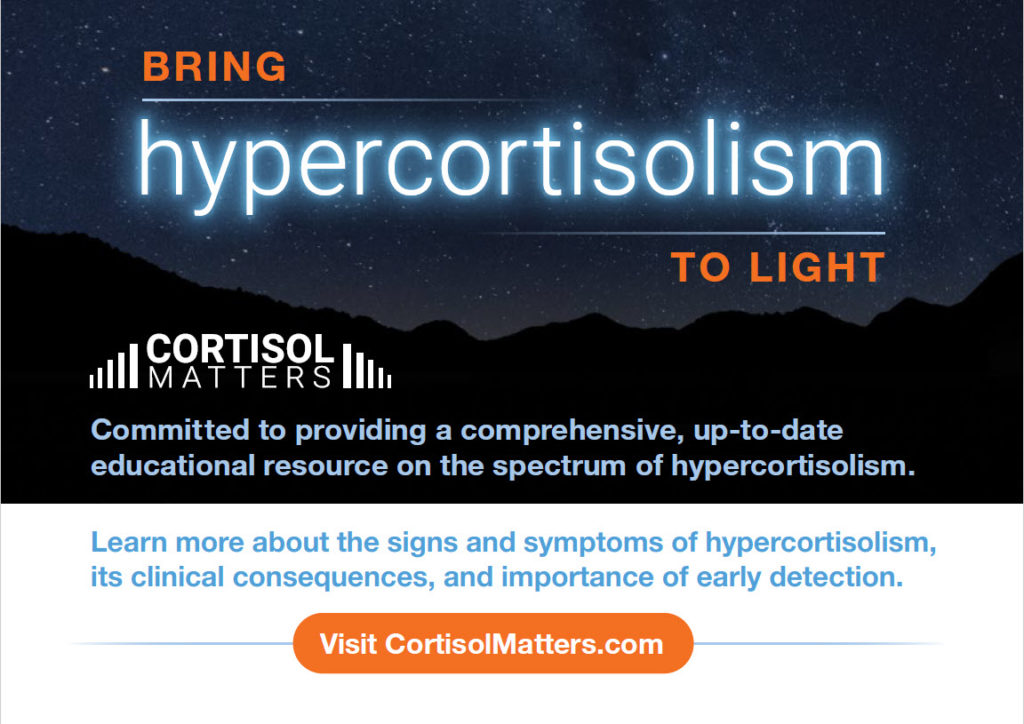Why is it important to know about the symptoms of hypercortisolism and its clinical consequences? And why is early detection so critical? The answers to these vital questions are highlighted in a new web resource CORTISOLMATTERS.COM.

The website explains in detail several clinical questions about hypercortisolism, including what it is and how does it affect the body; the signs and symptoms of hypercortisolism; the impact of excess cortisol; and who should be screened for hypercortisolism. As in other similar pituitary disorders, the signs and symptoms that are caused by hypercortisolism are also common in the general population. The similarity in the clinical presentation of individuals with and without the disorder, makes it challenging to diagnose.
Hypercortisolism, also referred to as Cushing’s syndrome, occurs when the body is exposed to high levels of the hormone cortisol for an extended time. Sometimes referred to as the stress hormone, cortisol is naturally produced in the adrenal glands, which are located at the top of the kidneys. Cortisol plays a role in the body’s response to stress and affects blood pressure, metabolism, inflammation, and memory formulation. Cortisol also helps to regulate blood sugar and control the amount of water in the body. All of these functions make cortisol crucial for overall health and well-being. Learn about treatment considerations here.
Visit cortisolmatters.com and learn to manage your health better.
© 2019 – 2020, Pituitary World News. All rights reserved.
